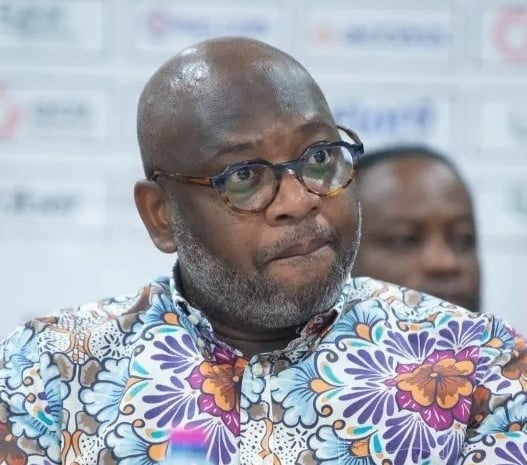The Ghana Cocoa Board (COCOBOD), the regulatory body responsible for Ghana’s vital cocoa industry, finds itself in a dire financial predicament, grappling with a colossal debt burden approaching GH¢33 billion (equivalent to several billion US dollars). This precarious situation, revealed by Acting Chief Executive Dr. Randy Abbey, threatens the long-term sustainability of the organization and the stability of the cocoa sector, a cornerstone of Ghana’s economy. The staggering debt figure encompasses a complex web of liabilities, including significant sums owed to agrochemical suppliers, banks, and various other creditors. The accumulation of these debts, some stretching back several years, paints a grim picture of financial mismanagement and unsustainable practices that have now reached a critical juncture.
The enormity of COCOBOD’s debt crisis is underscored by the constant pressure the organization faces from its creditors. Dr. Abbey described a daily struggle to manage legal threats and demands for payment from a multitude of sources. Agrochemical suppliers alone are owed over $400 million, a substantial amount that highlights the organization’s inability to meet its financial obligations. The constant barrage of legal actions and creditor visits underscores the urgency of the situation and the significant strain it places on COCOBOD’s operational capacity. The organization is essentially trapped in a vicious cycle of debt, constantly battling to keep afloat while facing mounting pressure to repay what it owes. This constant financial pressure diverts resources and attention away from COCOBOD’s core mission of supporting and regulating the cocoa industry.
The persistent pursuit by creditors, including banks and agrochemical suppliers, reflects the widespread impact of COCOBOD’s financial woes. Banks, facing pressure from their own creditors, are relentlessly pursuing COCOBOD for repayment. This, in turn, intensifies the pressure on the cocoa regulator, as it must contend with demands from both direct creditors and the banks that have financed its operations. The pressure from agrochemical suppliers is equally concerning. Their unpaid invoices hinder their ability to supply essential inputs to cocoa farmers, potentially impacting cocoa production and further exacerbating COCOBOD’s financial difficulties. This interconnected web of debt creates a domino effect, impacting various stakeholders and threatening the overall health of the cocoa sector.
Dr. Abbey’s account of his daily routine, filled with meetings with disgruntled creditors and legal battles, paints a vivid picture of the organization’s struggles. The constant stream of visitors seeking payment and the looming threat of legal action underscore the precarious position COCOBOD finds itself in. The organization’s operational capacity is severely hampered by this constant need to address immediate financial crises, leaving little room for strategic planning and long-term development. The focus on short-term survival has overshadowed the critical need for sustainable practices and long-term financial stability, creating a self-perpetuating cycle of debt.
The ramifications of COCOBOD’s debt crisis extend far beyond the organization itself. The cocoa sector is a critical component of Ghana’s economy, providing livelihoods for millions of farmers and contributing significantly to the country’s export earnings. The financial instability of COCOBOD jeopardizes the entire sector, potentially disrupting cocoa production, impacting farmer incomes, and undermining Ghana’s economic stability. The inability of COCOBOD to fulfill its obligations to farmers, including the timely payment for cocoa beans and the provision of essential inputs, could lead to widespread hardship and discourage future investment in the sector.
Addressing COCOBOD’s debt crisis is of paramount importance for the future of Ghana’s cocoa industry. A comprehensive restructuring of the organization’s finances is essential, along with a commitment to sustainable practices and responsible financial management. This will require a concerted effort from all stakeholders, including the government, financial institutions, and the international community. Failure to address this crisis effectively could have devastating consequences for Ghana’s economy and the livelihoods of millions who depend on the cocoa sector. The situation demands immediate and decisive action to prevent further deterioration and ensure the long-term viability of one of Ghana’s most valuable economic assets.


